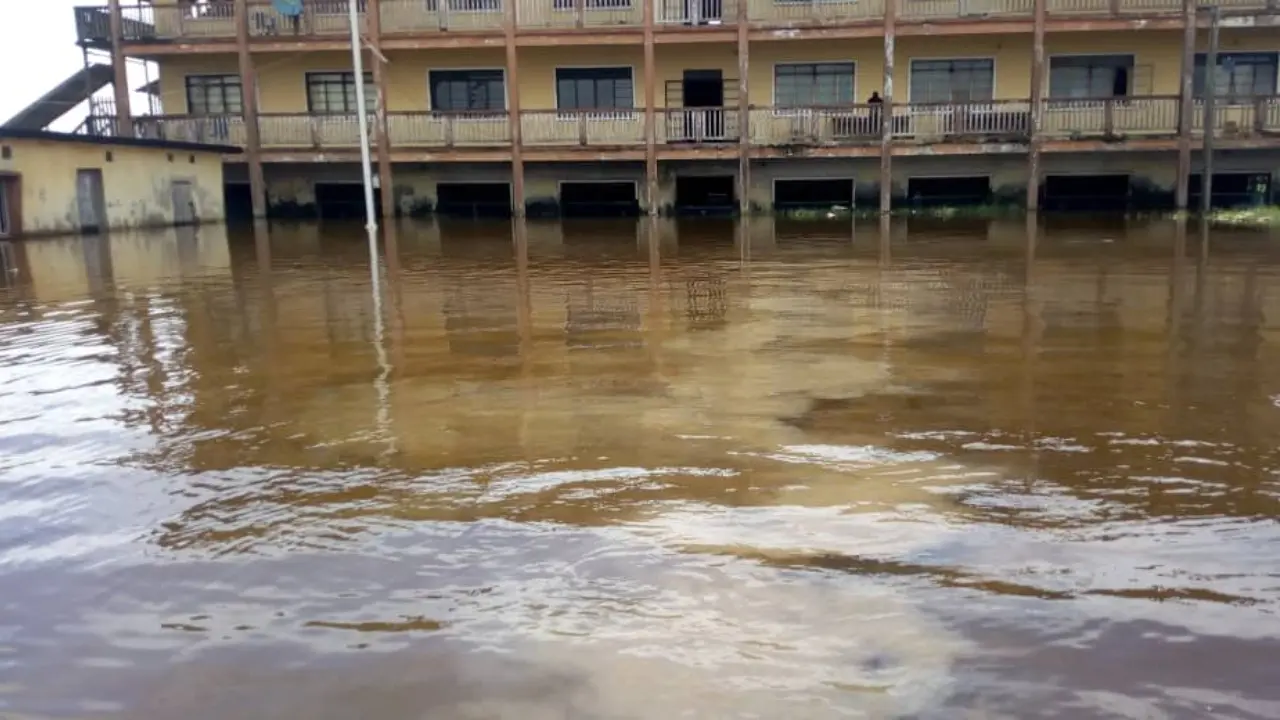The Bayelsa State Government is concerned that the flood’s impact would result in a humanitarian crisis.
Mr. Iselema Gbaranbiri, Commissioner for Environment and chairman of the state’s Task Force on Flood Mitigation and Management, highlighted the concern on Saturday while providing an update on the committee’s operations.
According to him, the flood in the state has completely or partially buried no less than 300 communities and villages.
Gbaranbiri further said that the flood had relocated or affected around 700,000 people.
According to him, almost all of the settlements and streets in Yenagoa Local Government Area have been drowned or partially flooded.
The flood had a similar impact on communities in five additional local government areas: Sagbama, Ekeremor, Ogbia, Kolokuma/Opokuma, and Southern Ijaw.
According to the Environment Commissioner, there have been reports of corpses washing up in the Asokoro cemetery, raising concerns about an impending health disaster.
He did, however, ensure that the government will do all possible to help flood victims, and that the committee was working around the clock to handle the current problem.
Governor Diri reiterated his request for a post-flood management roundtable with the worst-affected states and the federal government on Friday.
The Bayelsa governor stated that such a discussion was required owing to infrastructure damage and the quantity of state resources committed to combat the flood threat.
He spoke as he continued his on-the-spot evaluation visit of communities in Southern Ijaw Local Government Area and other Yenagoa Local Government Area.
The Amassoma road leading to the Niger Delta University (NDU) was visited, and it was closed off at three spots, leaving passengers stuck.
Governor Diri stated that the sad tragedy will prohibit the university from resuming classes now that the Academic Staff Union of Universities (ASUU) has ended its eight-month strike.
While his government bemoaned the high expense of repairing the damaged roads, Diri emphasized that individual losses of property and life would be limited if a lasting solution was implemented soon.
“I have already planned a course of action,” he says. We are really concerned about post-flood mitigation at this time. Our shattered infrastructure, particularly highways, will be the focus of the post-flood period.
“On Thursday, we noticed that the road heading from Ekeremor to Sagbama had been severely damaged by the flood.” The road from Yenagoa to Amassoma, where the Niger Delta University is located, has now fallen in three places. So, even if the ASUU ends its strike, the university cannot reopen. That is what I mean by the peculiarities of Bayelsa State and our Niger Delta environment.
“It would cost the state billions of naira to restore those roads.” Individual losses include houses that have collapsed as a result of the flood and the deaths that have occurred.
“In post-flood management, the federal government must work with the states to find a long-term and sustainable solution.” One of these ideas is the construction of a dam, so that when water is discharged from wherever, it can be contained in Nigeria.”
The governor also examined the state-owned airport, expressing joy that, despite the magnitude of the storm, the facility had not been swamped, contrary to opposition conjecture.
He also went to the Tombia School of Nursing and Basic Midwifery, Alamieyeseigha Road in Opolo, the Oxbow Lake Pavilion, and the Azikoro State Assembly Quarters.
